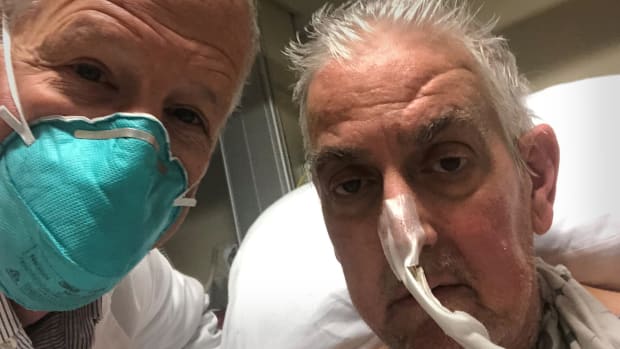The headlines after 57-year-old David Bennett's groundbreaking surgery in early January were awe-inspiring.
Bennett was battling severe heart disease and ineligible for a heart pump because of his irregular heartbeat. He was also ineligible for a typical heart transplant.
He was willing to try anything to stay alive, so when the Food and Drug Administration approved a highly experimental surgery for the transplant of a genetically modified pig heart under its "compassionate use" emergency authorization guidelines, Bennett decided to give it a try, despite the risks.
While Bennett's post-surgery experience was far from a perfect one, the transplanted heart showed no signs of rejection for weeks.
Thanks to it, he was able to survive to see another Super Bowl, singing along to "America the Beautiful." He got to spend two more months with his family, including son David Bennett, Jr.

Wikimedia Commons/University of Maryland School of Medicine
Hope for xenotransplantation is not lost
Despite several months of promising results, Bennett died on March 8, according to a statement from the University of Maryland Medicine stating that his condition "began deteriorating several days ago."
The statement did not clarify Bennett's cause of death.
"After it became clear that he would not recover, he was given compassionate palliative care," the hospital said in a statement. "He was able to communicate with his family during his final hours."
While Bennett's death is a sad moment for both his family and his doctors, his experience still remains a pivotal one for the field of xenotransplantation, which is the study of transplanting animal organs into human beings
Scientists have been hard at work exploring the potential of xenotransplantation since 1902, and its most recent achievements show marked progress. Pig kidneys have shown promise in testing.
Most important for investors, companies such as United Theraputics (UTHR)-owned Revivicor, which supplied the genetically altered pig heart for Bennett's transplant, are capable of creating more.
Since there's a great need for healthy organs — 17 people die each day waiting for an organ transplant — that research continues to push forward. And while it kicks up many ethical questions that will need answers, it also poses hope for future cases
A hopeful farewell
In a family statement shared by the University of Maryland Medicine, David Bennett, Jr. expressed gratitude for the extra time he got to spend with his father.
“Up until the end, my father wanted to continue fighting to preserve his life and spend more time with his beloved family, including his two sisters, his two children, and his five grandchildren, and his cherished dog Lucky,” Bennett, Jr. said in a statement.
“We were able to spend some precious weeks together while he recovered from the transplant surgery, weeks we would not have had without this miraculous effort.”
Despite the family's tremendous loss, Bennett, Jr. was still able to acknowledge what an impact his father's bravery had.
“We are grateful for every innovative moment, every crazy dream, every sleepless night that went into this historic effort," he said. "We pray that those looking for hope will continue to fight for the future, fight for new ideas, fight for answers, fight for life. Fight like Dave.”







